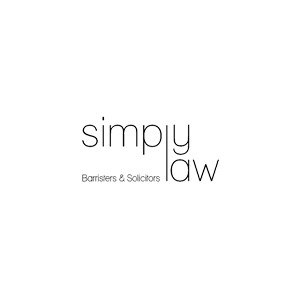Best Financial Services Regulation Lawyers in Tauranga
Share your needs with us, get contacted by law firms.
Free. Takes 2 min.
List of the best lawyers in Tauranga, New Zealand
About Financial Services Regulation Law in Tauranga, New Zealand
Financial Services Regulation in Tauranga, New Zealand, is a critical aspect of maintaining a fair and transparent financial market. The regulatory framework is designed to ensure the stability of the financial system, protect consumers, and promote competition. Primary regulators include the Financial Markets Authority (FMA) and the Reserve Bank of New Zealand (RBNZ), overseeing sectors such as banking, insurance, securities, and superannuation. In Tauranga, as part of the broader New Zealand financial landscape, adherence to these regulations is crucial for maintaining trust and integrity in financial transactions and services.
Why You May Need a Lawyer
There are several situations where seeking legal advice in Financial Services Regulation may be necessary:
- Compliance Issues: Ensuring that your business operations adhere to existing financial regulations can be complex. A lawyer can help navigate these regulations to avoid penalties and sanctions.
- Dispute Resolution: Legal assistance may be required to resolve disputes between financial service providers and consumers or between financial institutions.
- Licensing and Registration: Navigating the process of obtaining necessary licenses or registration to operate legally in the financial sector can be aided by legal advice.
- Mergers and Acquisitions: In the case of corporate consolidations, legal expertise ensures that the transaction complies with regulatory standards.
- Regulatory Investigations: If facing an investigation by a regulatory authority, legal representation is critical to protecting your interests.
- Contract Drafting and Review: Lawyers can assist in drafting and reviewing contracts to ensure compliance with financial regulations.
Local Laws Overview
The financial regulatory environment in Tauranga is governed by a combination of national laws and guidelines. Key legislation includes the Financial Markets Conduct Act 2013, which governs how financial products are offered and sold, and the Anti-Money Laundering and Countering Financing of Terrorism Act 2009, which imposes obligations to detect and prevent money laundering. Additionally, the Credit Contracts and Consumer Finance Act 2003 regulates consumer credit contracts to ensure fairness and transparency. Practicing vigilance and aligning with these regulations ensures that businesses remain compliant and competitive.
Frequently Asked Questions
What is the role of the Financial Markets Authority (FMA)?
The FMA regulates capital markets and financial services in New Zealand, including issuing licenses, monitoring compliance, and enforcing the law to protect investors and promote fair markets.
What are the consequences of non-compliance with financial regulations?
Non-compliance can result in penalties such as fines, sanctions, reputational damage, and in severe cases, the revocation of a business's license to operate.
How do I know if my business needs a financial services license?
Any business providing financial advice, products, or services typically requires a license. Consult with a legal expert to understand specific licensing requirements for your operations.
What steps can be taken to ensure compliance with anti-money laundering regulations?
Implement comprehensive internal controls, employee training programs, and regular audits to detect and prevent suspicious financial activities.
Who enforces financial regulations in Tauranga?
Financial regulations in Tauranga are enforced by national bodies such as the FMA and the RBNZ, which have the authority to investigate and prosecute violations.
How do I handle a dispute with a financial service provider?
Attempt to resolve the issue directly with the provider. If unsuccessful, seek mediation or legal representation to explore further options, including formal complaints to regulatory bodies.
What is the process for registering a financial product?
Registration involves submitting an application to the FMA, providing detailed information about the product, and ensuring compliance with relevant regulations. Legal advice can facilitate this process.
Can financial regulations affect investment decisions?
Yes, regulatory changes can impact investment strategies, so staying informed about regulations is crucial for making informed investment decisions.
What is the purpose of the Reserve Bank of New Zealand in financial regulation?
The RBNZ oversees the stability of the financial system, setting monetary policy, and regulating banks to ensure robust financial conditions.
How do financial regulations protect consumers?
Regulations safeguard consumer interests by ensuring transparency, fairness, and accountability in financial services, while also providing mechanisms for redress in cases of malpractice.
Additional Resources
For further assistance and information, consider reaching out to the following resources:
- Financial Markets Authority (FMA): Offers guidance on financial regulation and compliance.
- Reserve Bank of New Zealand (RBNZ): Provides insights into monetary policy and financial system stability.
- New Zealand Law Society: A source for finding qualified lawyers specializing in financial services regulation.
- Consumer Protection New Zealand: Offers resources for consumers on their rights in financial services.
Next Steps
If you require legal assistance in Financial Services Regulation, follow these steps:
- Identify your needs: Determine the specific area where you need legal advice, such as compliance, dispute resolution, or licensing.
- Research professionals: Look for lawyers or law firms in Tauranga with expertise in financial services regulation.
- Schedule consultations: Meet with a few legal professionals to discuss your issue and evaluate their expertise and approach.
- Engage a lawyer: Once satisfied with a lawyer's capability to handle your case, formally engage them to represent your interests.
- Prepare documentation: Gather and organize any required documentation or information relevant to your legal needs.
Lawzana helps you find the best lawyers and law firms in Tauranga through a curated and pre-screened list of qualified legal professionals. Our platform offers rankings and detailed profiles of attorneys and law firms, allowing you to compare based on practice areas, including Financial Services Regulation, experience, and client feedback.
Each profile includes a description of the firm's areas of practice, client reviews, team members and partners, year of establishment, spoken languages, office locations, contact information, social media presence, and any published articles or resources. Most firms on our platform speak English and are experienced in both local and international legal matters.
Get a quote from top-rated law firms in Tauranga, New Zealand — quickly, securely, and without unnecessary hassle.
Disclaimer:
The information provided on this page is for general informational purposes only and does not constitute legal advice. While we strive to ensure the accuracy and relevance of the content, legal information may change over time, and interpretations of the law can vary. You should always consult with a qualified legal professional for advice specific to your situation.
We disclaim all liability for actions taken or not taken based on the content of this page. If you believe any information is incorrect or outdated, please contact us, and we will review and update it where appropriate.

















